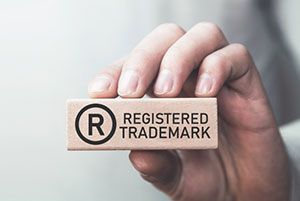Guidelines for Proper Usage of the LISTSERV® Trademark
LISTSERV®
\'list-,srv\ or /'lists:v/
trademark
L-Soft is the only company that develops and sells LISTSERV® email list management software. Eric Thomas, L-Soft Founder and CEO, developed the software in 1986 and registered LISTSERV® as a trademark in 1996. The aim of these usage guidelines is to discuss the importance and value of the LISTSERV® trademark to our business, customers and the community as a whole in order to protect and maintain the distinctiveness of our trademark. The proper use of the LISTSERV® trademark is important to us, so please help us preserve the value and integrity of our trademark.
What is a Trademark?
Trademarks are words, symbols, designs and logos that inform consumers that they are purchasing a product or service originating in one way or another from a particular company or other source. For instance, anytime you see the LISTSERV® trademark, you will know that it is describing the software product developed by L-Soft.
It is also important to realize that trademarks are property, just like buildings and machinery. They should, therefore, be treated with the same respect as these, more obvious, tangible forms of property. The type of property that includes trademarks is known as intellectual property.
Why Are Trademarks Important?
Trademarks are important because they:

- Identify and distinguish a product or service
- Serve as an assurance of consistency or the quality of a product
- Assist in advertising and promoting a service or product
- Educate users, the industry and the general public to prevent confusion
Proper Usage of Trademarks
Proper usage of trademarks involves a handful of basic and easy-to-apply rules. In order to protect and preserve the value of our trademark, the general rules set forth below should be followed whenever LISTSERV® is used:
1. Trademarks should not be used without an associated generic product name
Because trademarks are adjectives that identify the source or origin of the product, they should always be used with the correct generic product name for the product item.
Example:
Incorrect |
Correct |
Let's post a message to the listserv. |
Let's post a message to the LISTSERV® mailing list. |
2. Trademarks should not be used in the possessive form
Nouns are sometimes used in the possessive form. Because trademarks are adjectives, not nouns, they should not be made possessive. Instead, the generic product name should be made possessive.
Example:
Incorrect |
Correct |
LISTSERV's double opt-in function is available on all operating systems. |
The LISTSERV® email list manager's double opt-in function is available on all operating systems. |
3. Trademarks should not be used as verbs
Because trademarks are adjectives, they must never be used as verbs to describe an activity.
Example:
Incorrect |
Correct |
The university listservs a variety of student services. |
The university provides a variety of student services through its LISTSERV® email lists. |
4. Trademarks should not be used in plural form
When you are referring to more than a single product item, do not pluralize the trademark. Instead, describe a plural reference to trademarked products by using the plural form of the generic product name.
Example:
Incorrect |
Correct |
I am subscribed to several listservs.
I know many organizations that have their own listservs. |
I am subscribed to several LISTSERV® email lists.
I know many organizations that have their own LISTSERV® mailing lists. |
5. Trademarks should never be spelled differently to form a new word or be combined with other words, or hyphenated, or abbreviated:
Example:
Incorrect |
Correct |
LISTSERVE
LISTSERVER
LISTSERV-based
LISTSERV-like
LIST-SERV
LIST*SERV
ListServ |
LISTSERV® |
Methods of Distinguishing the Trademark
To ensure that the trademark stands out from its surroundings, some simple techniques can be applied:

- Write the whole trademark in capital letters
- Write the first letter of each word in a trademark as a capital letter
- Use an unusual typeface, such as italics, for the trademark
- Use bold or colored lettering for the trademark
- Place the trademark in "quotation marks"
How Can You Prevent the Misuse of the Trademark?
Follow the above guidelines and submit any reports of trademark misuse or any related questions to: trademarks@lsoft.com.
When reporting trademark misuses, please include as much of the following information as possible:
- Name of the organization misusing the trademark
- Website
- URL pointing to the page with the misuse
Any other relevant information is always welcome. We appreciate your assistance with protecting the LISTSERV® trademark.
LISTSERV is a registered trademark licensed to L-Soft international, Inc.
Serial No. 74-727,625 registered June 25, 1996
Reg No. 2,001,258.
ListPlex is a registered service mark of L-Soft international, Inc.
Serial No. 78-498,252 registered July 18, 2006
Registration No. 3,116,119.
LISTSERV is a registered trademark licensed to L-Soft international, Inc.
See Guidelines for Proper Usage of the LISTSERV Trademark for more details.
All other trademarks, both marked and unmarked, are the property of their respective owners.









